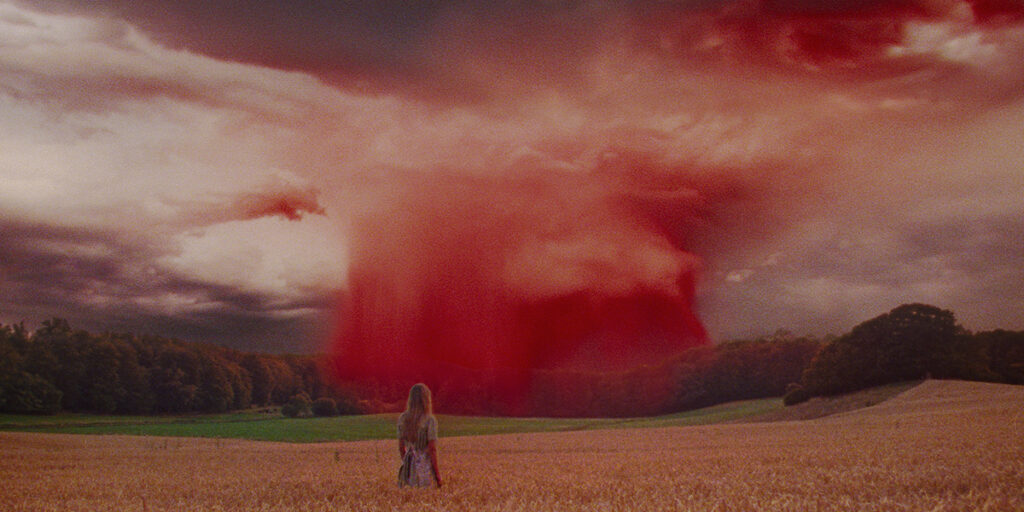TIFF Review: As in Heaven
Written by Ian Thomas Malone, Posted in Blog, Movie Reviews
The notion of “God’s Will” largely lies in the eyes of the beholder, essentially a Rorschach test. One can attribute their own good fortune to God, or view life setbacks as punishment for their own failings in His eyes. Whether fate or destiny are actually real is almost irrelevant. One’s faith, often influenced by their family or cultural ties, is all that matters.
As in Heaven (Danish title Du som er i himlen) follows Lise (Flora Ofelia Hofmann Lindahl), a young woman about to leave her 19th century rural village to go to school. Her mother, Anna (Ida Cæcilie Rasmussen), is about to go into labor after a challenging pregnancy. On the cusp of adulthood, Lise’s dreamy final days spent playing with her cousins and youthful crushes takes a dark turn as her mother experiences some dire medical complications.
Making her directorial debut, Tea Lindeburg has an exquisite eye for detail that works wonders for her period drama. Cinematographer Marcel Zyskind presents frame after frame that could be presented in an art gallery. The film does a wonderful job capturing the natural beauty of Denmark.
Where Lindeburg falls short is with the screenplay. The beautiful cinematography and strong performances are constantly undercut by a narrative that only feigns a middling interest in its own themes. The first act stretches for about half the 86-minute runtime, setting up a lot of big questions without ever really caring to grapple with what’s been presented.
Lindahl does an admirable job in the lead role, capturing Lise’s natural sense of angst as she prepares to leave her world behind to pursue her studies. An anxious time in anyone’s life, Lindahl showcases her great range as the narrative starts to finally ramp up. For all the shortcomings of the screenplay, Lise remains a compelling figure to watch.
The meatiest plotline in the film lies with Lise feeling guilty over a misplaced hairpiece she borrowed from her mother, blaming herself for her mother’s difficulties in labor. Lindeburg sort of signals her intentions to explore the burdens that religious communities place upon their youth, but the narrative is too unfocused to explore this concept in a satisfying manner. It’s almost as if the film threw a bunch of ideas at the wall and left them behind without waiting to see what stuck.
As in Heaven is a perplexing experience. For all the beauty captured on screen, the end result leaves a rather empty feeling. Shot during the COVID-19 pandemic, Lindeburg and her crew deserve a lot of credit for putting together a first-rate production, which would have been a lot better if the screenplay didn’t play out like a rough draft in desperate need of fine-tuning.











